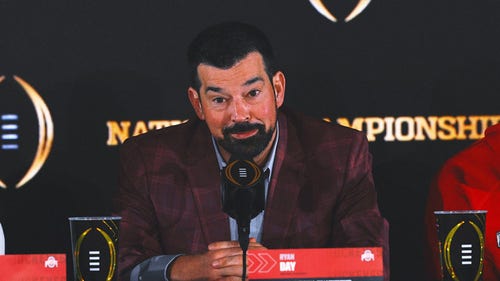Ken Riley will be inducted into the Pro Football Hall of Fame 3 years after his death
When Ken Riley entered the NFL as a sixth-round pick by Cincinnati in 1969 after a successful college career as a dual-threat quarterback at Florida A&M, he was greeted with a harsh reality.
In an era when the model QB was a tall, drop-back passer, mobile QBs such as Riley from historically Black colleges typically got moved to other positions. So Riley was immediately told by Hall of Fame coach Paul Brown that his NFL career would be at cornerback not quarterback.
“That’s not an easy thing to accept,” said former Bengals teammate Dave Lapham. “I know he felt like he could have played quarterback in the National Football League. But he accepted the move to the corner and more than accepted it, he excelled at it.”
Riley excelled at the position switch so much with 65 career interceptions — tied for the fifth-most ever — and five returned for touchdowns that he will be inducted into the Pro Football Hall of Fame on Saturday, just more than three years after his death.
Riley took to the position switch right away with four interceptions as a rookie and never really slowed down until he retired after intercepting eight passes and earning first-team All-Pro honors at age 36 following the 1983 season.
“He worked hard just to master his craft, worked hard to accomplish what he was able to accomplish,” former Bengals receiver Isaac Curtis said. “To come in as a quarterback and be able to play 15 years in the NFL at cornerback, having never been a cornerback before, it just shows you the kind of work ethic and kind of athlete that he was. He prepared and played the game at a high level. You almost didn’t really realize it because he’s so low key and quiet. But at the end of the day, you look at what he accomplished was amazing.”
Riley used his background as a quarterback to excel at shutting down the opponent's passing game. A copious note taker and studier of film, Riley kept detailed books with his own scouting reports on receivers around the league.
He combined that preparation and knowledge with great athleticism to shine at the position. His seven seasons with at least five interceptions are tied for the most in the Super Bowl era.
“He was very aware of like route combinations and route trees,” Lapham said. “He saw the game through a quarterback’s eyes, having played that position all the way through his collegiate career. He read routes. He would break on them in a timely manner. He kind of saw it before it happened. He just had an extraordinary feel back there and the ability to make plays on the football.”
But Riley was known as much for being a great teammate and leader as he was for his play, with younger Bengals saying he took them under his wing and taught them how to handle themselves as professional football players on and off the field.
Those skills led him to return to his alma mater after his playing career where he coached for eight seasons and later served as athletic director at Florida A&M.
“He wasn’t a rah-rah in-your-face guy,” said former Bengals cornerback Louis Breeden. “He just had a way of communicating with people. When Ken Riley said something, people paid attention to it. It’s not like some guys who talk all the time I think sometimes just to be talking. Ken Riley? Oh, damn it’s Ken Riley talking. Usually it is pretty good and it’s pretty on point.”
Riley is just the second player who spent the majority of his career with the Bengals to make it into the Hall of Fame, joining former teammate Anthony Munoz, a nine-time All-Pro tackle who was inducted in 1998.
But the honor comes too late for Riley to enjoy as he died of a heart attack in 2020 at age 72, questioning whether he would ever get the recognition he deserved.
“It’s kind of bittersweet. But he’s in now and we’re just very excited,” said his son, Ken Riley Jr. “I didn’t doubt it. I think he started to doubt it after the centennial class. I thought we were going to get in at that time. When that didn’t happen, he was disappointed. But one of the last things I told him was ’You’re going to get in if that’s the last thing I do.’ I definitely was making sure that we try to keep him relevant. ... He finally got in. I can exhale now.”
___
AP NFL: https://apnews.com/hub/nfl









